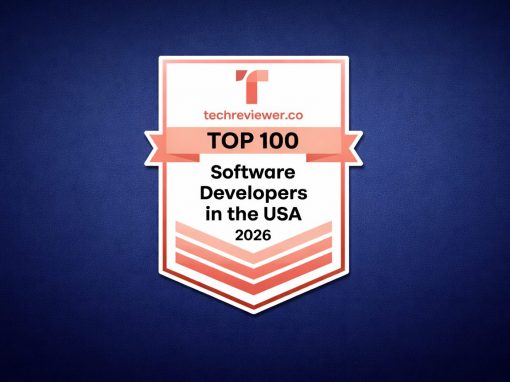Table of Contents
Listen to article
By 2031, the machine learning (ML) market is expected to surge to US $568.32 billion. So why the rapid growth?
ML, a subfield of AI, empowers computers to analyze vast datasets and make informed decisions, driving innovation across industries such as healthcare, finance, and e-commerce by automating tasks, uncovering patterns, and improving predictions.
However, as ML takes center stage, so do concerns about data privacy.
Consider this: In 2024, the United States recorded 3,158 data compromises, affecting more than 1.35 billion individuals through breaches, leaks, and exposures.
This alarming statistic underscores the urgency to address data privacy in ML applications. The solution?
Privacy-preserving machine learning, an emerging approach that enables organizations to leverage data insights while safeguarding sensitive information.
Let’s delve into the crucial intersection of ML and data security, exploring the challenges, strategies, and technologies that are shaping the landscape of privacy-preserving machine learning.
The Importance of Data Privacy
In an era where data fuels innovation, data privacy is not only a matter of compliance but also a fundamental right. However, not everyone is comfortable with how their personal information is collected, stored, and used.
In fact, about eight-in-ten of those familiar with AI say its use by companies will lead to people’s personal information being used in ways they won’t be comfortable with (81%) or that weren’t originally intended (80%).
This growing concern highlights how machine learning, despite its power to extract insights and patterns from data, also introduces significant privacy challenges.
Imagine this scenario: You’re scrolling through your favorite e-commerce platform, and it suggests the perfect pair of sneakers.
How did it know your exact preferences?
The answer lies in data – your data. Every click, every search, and every purchase has been silently collected, analyzed, and used to tailor your experience. While this personalization can enhance your online journey, it also poses questions about who has access to your information and how it’s being used.
Machine learning algorithms thrive on data variety and volume, making them incredibly effective at their tasks. However, this effectiveness comes with a trade-off: the potential for misuse or unintended exposure of sensitive data.
That’s why it’s no longer enough to focus solely on the accuracy and performance of ML models. We must also prioritize safeguarding the data that fuels them, adopting approaches like privacy-preserving machine learning to ensure sensitive information remains protected while still enabling powerful, data-driven insights.
Privacy Risks in Traditional Machine Learning
Machine learning, while a powerful ally, can inadvertently become a threat to data privacy. Let’s explore some common privacy risks and real-world instances where machine learning played a role in compromising privacy.
- Data leakage: In traditional machine learning, models can inadvertently memorize sensitive data from training sets. For instance, the Sogou keyboard app did not have proper encryption in place, and it stored users’ keystrokes, including sensitive passwords, leaving them vulnerable to breaches.
- Re-identification attacks: When seemingly anonymous data is combined with external information, individuals can be re-identified. Netflix faced this issue when researchers were able to re-identify individuals by linking Netflix movie ratings with publicly available data.
- Adversarial attacks: When the security of machine learning algorithms is weak, malicious actors can manipulate the ML models to reveal sensitive information. An example is the manipulation of a deep learning model to misclassify images, which can have grave consequences in fields like healthcare.
- Inference attacks: Inference attacks involve extracting sensitive information from a model itself. Researchers have demonstrated that machine learning models trained on public data can inadvertently expose private information present in their training data.
- Model stealing: Attackers can reverse-engineer machine learning models, gaining access to proprietary algorithms. This breach could reveal sensitive data processing techniques and potentially expose user data.
What is Privacy-Preserving Machine Learning?
Privacy-preserving machine learning (PPML) is a set of techniques and practices that safeguard sensitive data during the training and deployment of machine learning models.
It allows organizations to harness the power of machine learning while respecting data privacy. This ensures that confidential information remains secure and anonymous throughout the AI lifecycle.
The Need for Privacy-Preserving Techniques in Machine Learning
As businesses increasingly deploy machine learning for various applications, the need to protect sensitive information has become paramount.
Privacy-preserving techniques in machine learning are not a luxury; they are a necessity. These techniques address the fundamental challenge of striking a balance between data-driven insights and individual privacy rights. This enables organizations to leverage the incredible power of ML while respecting the confidentiality of personal and sensitive data.
Let’s explore in detail the most common privacy-preserving techniques.
Techniques for Privacy-Preserving Machine Learning
To ensure machine learning data security, you can apply the following techniques:

Differential Privacy
Differential privacy is a framework designed to protect individual data points within a dataset. It introduces statistical “noise,” or random variations, into the data before analysis, making it incredibly difficult for an attacker to discern specific information about any individual.
This technique enables organizations to draw accurate conclusions from data without exposing sensitive details.
Example: A hospital using differential privacy can analyze patient records to identify treatment trends without revealing any one patient’s medical history. Even if attackers gained access to the dataset, the added “noise” would prevent them from tracing results back to an individual.
Homomorphic Encryption
Homomorphic encryption allows computations to be performed on encrypted data without revealing the underlying information.
This technique ensures that sensitive data remains confidential throughout the entire machine learning process, providing a solid layer of security.
Example: A bank can use homomorphic encryption to run credit risk analyses on encrypted customer financial records. This means the system can assess loan eligibility without ever exposing the actual income, credit history, or spending details of individual clients.
Federated Learning
Federated learning decentralizes the model training process.
Instead of sending raw data to a central server, the model is trained locally on user devices. Only aggregated insights, not individual data, are shared with the central model. This approach offers privacy without compromising the quality of machine learning models.
Example: Smartphone companies use federated learning to improve predictive text and autocorrect features. Each phone trains the model locally based on the user’s typing habits, while only the encrypted updates are sent back—ensuring personal messages never leave the device.
Secure Multi-party Computation
Secure multi-party computation (SMPC) is a technique that enables multiple parties to collectively perform computations on their combined data while ensuring the privacy of each party’s individual information. This way, each party contributes essential pieces of the solution without revealing their specific contributions.
SMPC is particularly suitable for collaborative machine learning settings, where data from multiple sources must be analyzed while preserving the confidentiality of each dataset.
Example: Several banks can use SMPC to jointly detect fraud patterns by analyzing transaction data across institutions. Each bank’s data remains private, but the combined analysis uncovers suspicious activity that wouldn’t be visible to any single bank alone.
Data Anonymization
Data anonymization is the process of modifying data in a manner that severs any connections to specific individuals. This technique empowers organizations to harness data for analysis and research purposes while ensuring that the identities of individuals remain completely safeguarded.
Example: An e-commerce company might anonymize customer purchase data by stripping out personal identifiers before analyzing shopping trends. This lets the company understand buying behavior and improve recommendations without exposing individual customer identities.
Applications of Privacy-preserving Machine Learning
Privacy-preserving machine learning offers innovative solutions across diverse industries by harnessing the power of data while safeguarding sensitive information. For example, it can be used in:
- Healthcare: In the healthcare sector, PPML plays a pivotal role in ensuring patient privacy. By employing techniques like federated learning, medical institutions can collaborate on improving diagnostics and treatment recommendations without exposing individual patient records. This enables accurate medical insights while maintaining essential machine learning security principles.
- Finance: In the financial industry, security is paramount. PPML allows for robust fraud detection mechanisms without disclosing specific transaction details. Financial institutions can identify and mitigate fraudulent activities while protecting the privacy of their clients.
- Marketing: PPML revolutionizes personalized marketing. Businesses can tailor product recommendations and advertisements (e.g., Google Ads) to individual preferences without invading users’ privacy. This approach ensures a more engaging and targeted marketing strategy while respecting user data privacy.
- Public policy: In the realm of public policy and governance, PPML holds immense promise. It can be applied to traffic management by analyzing real-time data without tracking individual vehicles. Additionally, PPML can enhance voter fraud detection, ensuring the integrity of electoral processes without compromising citizens’ privacy.
“One example is our model of risk assessment. We cut false positives of fraud detection by 60% with the addition of AI, saving our clients millions in potential losses. Of course, it wasn’t all smooth sailing; at first, data privacy concerns held down this adoption. We confronted this by deploying rigorous encryption protocols and letting users have much more granular control over their choices regarding data sharing.”
– Abid Salahi, Co-founder of Finly Wealth
Challenges and Future Directions
As Privacy-Preserving Machine Learning continues to reshape the landscape of data-driven industries, several challenges and exciting future prospects emerge.
Challenges
- Scalability: While PPML techniques offer remarkable privacy protection, they often come with computational overhead. Ensuring scalability, especially for large-scale applications, remains a challenge. However, striking the right balance between privacy and performance is crucial for widespread adoption.
- Regulatory framework: The regulatory landscape surrounding data privacy is evolving rapidly. Laws like the GDPR and the CCPA have set stringent requirements for data handling. Understanding and complying with these regulations while implementing PPML is a complex endeavor. The future likely holds more regulatory updates that will impact how organizations approach data privacy and machine learning.
- Technological limitations: Currently, there’s ongoing research into improving the efficiency and effectiveness of privacy-preserving algorithms. Advancements in areas like homomorphic encryption, federated learning, and secure multi-party computation will play a pivotal role in addressing these limitations.
Future Directions
- Ethical considerations: The ethical implications of PPML are gaining prominence. Future directions may include ethical frameworks for PPML implementation, ensuring that algorithms respect not only legal but also ethical standards.
- Collaboration and education: Fostering collaboration between industry, academia, and policymakers is crucial. Knowledge sharing and educational initiatives can help organizations navigate the complex terrain of data privacy regulations and PPML implementation.
- Democratization of PPML: The democratization of PPML tools and techniques will likely be a future trend. Making these technologies more accessible to a broader range of organizations, including smaller businesses, can lead to widespread adoption.
Conclusion
In today’s data-driven world, adopting machine learning has become critical for driving innovation and staying competitive. Yet as reliance on AI grows, so does the need to safeguard sensitive information.
Privacy-preserving machine learning bridges this gap by combining the power of machine learning with robust privacy protections, ensuring we can leverage AI without compromising individual rights.
At Scopic, our machine learning development services ensure that your applications remain secure, compliant with regulations, and respectful of user privacy.
Schedule a free consultation with us today to learn how our AI development services can help build your app while safeguarding what matters most – data security and user privacy.
FAQs about Privacy-Preserving Machine Learning
What is privacy-preserving machine learning (PPML)?
Privacy-preserving machine learning is an approach that enables organizations to train and use machine learning models while protecting sensitive data through techniques like differential privacy, federated learning, and homomorphic encryption.
Why is privacy-preserving machine learning important for businesses today?
Privacy-preserving machine learning is important for businesses today because it allows them to leverage AI-driven insights while protecting sensitive data, staying compliant with regulations, and maintaining customer trust.
What techniques are used in privacy-preserving machine learning?
Common privacy-preserving techniques in machine learning include differential privacy, federated learning, homomorphic encryption, secure multi-party computation, and data anonymization, all of which help protect sensitive information while still enabling accurate AI insights.
How does privacy-preserving machine learning protect sensitive data in industries like healthcare and finance?
Privacy-preserving machine learning enables organizations to analyze and share insights without exposing personal details. For example, hospitals can collaborate on diagnostics using federated learning without sharing patient records, and banks can detect fraud with privacy-preserving techniques that keep individual transaction data confidential.
LLM Fine-Tuning Whitepaper
Implement Smarter LLMs Without Breaking the Bank: A Practical Guide to Fine-Tuning and LoRA

About Privacy-Preserving Machine Learning Guide
This guide was authored by Vesselina Lezginov, and reviewed by Taras Shchehelskyi, Principal Engineer with experience in leading and delivering complex dental software projects.
Scopic provides quality and informative content, powered by our deep-rooted expertise in software development. Our team of content writers and experts have great knowledge in the latest software technologies, allowing them to break down even the most complex topics in the field. They also know how to tackle topics from a wide range of industries, capture their essence, and deliver valuable content across all digital platforms.





